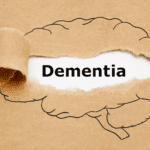The Evolving Demographic Landscape
In the UK, an unprecedented shift in the population dynamics underscores a burgeoning need for quality care. The elderly and disabled communities are expanding, spotlighting the critical importance of robust support systems. The landscape of care is being redefined, with a pronounced emphasis on the necessity for services that not only meet the clinical needs but also honour the personal dignity and independence of these individuals.
The Shift Towards At-Home Care Post-COVID-19
The COVID-19 pandemic has significantly influenced perspectives on elderly and disability care, propelling a marked preference for at-home care over traditional residential settings. This pivot reflects a collective desire for a care model that emphasises personalization and compassion, allowing individuals to remain in their familiar surroundings. At-home care, characterised by its adaptability and individual-centric approach, emerges as a preferred solution, aligning with the evolving expectations of both care recipients and their families.
The Critical Role of 24-Hour Carers
In this changing landscape, 24-hour carers stand as pillars of support, offering round-the-clock assistance that is tailored to the unique needs of each individual. The move towards personalised, at-home care solutions highlights the invaluable role of these caregivers in ensuring the well-being, safety, and quality of life for the elderly and disabled populations.
Understanding 24-Hour Care
24-hour care is an all-encompassing, round-the-clock service designed to meet the complex and evolving needs of individuals requiring constant assistance. This care model is particularly suited for those with significant health challenges, including severe mobility restrictions, advanced stages of dementia, or chronic illnesses that necessitate vigilant monitoring and immediate response to any emergent care needs.
Distinguishing Between Live-In Care and 24-Hour Care
While both live-in care and 24-hour care serve to support individuals in their homes, key distinctions set them apart:
- Live-In Care: Typically involves a single caregiver who resides with the client, providing support with daily activities, companionship, and care through a more regular daytime schedule. Live-in caregivers have designated rest periods and may not be available during the night for immediate assistance.
- 24-Hour Care: Involves multiple caregivers working in shifts to ensure someone is always awake, alert, and available throughout the day and night. This model guarantees continuous coverage, making it ideal for clients who require intensive support or are at risk of nighttime emergencies.
Types of Needs Addressed
24-hour care is designed to address a wide spectrum of needs, including but not limited to:
- Continuous medical monitoring
- Frequent medication administration
- Assistance with mobility and transfers at any hour
- Immediate response to potential emergencies
Flexibility and Personalised Attention
One of the hallmarks of 24-hour care is its inherent flexibility and capacity for personalised attention. Care plans are meticulously tailored to the individual’s specific health requirements, personal preferences, and daily routines, ensuring a high level of personalised care that promotes both safety and independence. This adaptability extends to accommodating changes in the client’s condition or preferences, ensuring the care provided remains aligned with their needs over time.
Promoting Safety and Independence
The ultimate goal of 24-hour care is to ensure the safety of individuals while fostering as much independence as possible. Continuous supervision and assistance offer peace of mind to both clients and their families, knowing that professional support is always at hand. This constant presence not only mitigates risks associated with health emergencies and falls but also supports the engagement in daily activities and maintenance of a fulfilling lifestyle within the familiar comforts of home.
In essence, 24-hour care represents a comprehensive, client-centred approach to home care, offering unmatched support and flexibility for those with extensive care needs, thereby enhancing their quality of life and ensuring their well-being in the safety and familiarity of their own home.
Types of 24-Hour Care
When considering 24-hour care, it’s crucial to understand the different models available to ensure the care recipient receives the appropriate level of support tailored to their needs. The main types of 24-hour care include in-home care, assisted living, and memory care, each offering unique advantages.
- In-Home Care: This model provides caregivers who assist with daily activities, medical needs, and personal care directly in the individual’s home, allowing them to stay in a familiar environment. The primary advantage is the personalised, one-on-one attention the care recipient receives, enabling them to maintain their routines and preferences with greater independence.
- Assisted Living: Assisted living facilities offer a combination of independence and care, providing individual apartments or rooms with access to communal areas and activities. This option suits those who require assistance with daily activities but do not need constant, intensive medical supervision. The benefits include built-in social networks and activities designed to keep residents engaged and active.
- Memory Care: Specialised for individuals with Alzheimer’s, dementia, or other cognitive impairments, memory care units are designed to provide a safe, structured environment with routines that help reduce stress for residents. Staff in these facilities are specially trained to deal with the unique challenges of memory care, offering activities and therapies that cater to individuals’ needs.
The Role of Carers and Nurses
The roles of home caregivers and nurses in a 24-hour care setting are multifaceted and essential for the well-being and quality of life of seniors.
- Personal Care: Caregivers assist with personal hygiene, bathing, dressing, and toileting, ensuring the dignity of the individual is maintained. This support is crucial for those who struggle with mobility or daily tasks.
- Medication Management: Nurses or trained caregivers manage medications, ensuring doses are taken correctly and on time. This includes monitoring for side effects and coordinating with healthcare providers to manage the individual’s health effectively.
- Companion Care: Beyond physical needs, caregivers provide companionship, a vital aspect of care that supports mental and emotional well-being. They engage in conversation, activities, and social outings, helping to reduce feelings of loneliness and isolation.
- Errands and Transportation: Caregivers often assist with errands, shopping, and transportation to appointments, facilitating independence and access to the community.
Each model of 24-hour care offers different benefits, and the choice largely depends on the individual’s specific needs, preferences, and the level of medical and personal support required. The dedication and expertise of caregivers and nurses in these settings are instrumental in enhancing the quality of life for the elderly and disabled, providing not just care, but comfort, companionship, and dignity.
Financial Considerations
Navigating the financial landscape of 24-hour care is crucial for families and individuals considering this level of support. The costs associated with 24-hour care can vary widely depending on the care recipient’s needs, the care setting, and geographic location. Understanding the various funding options available is essential for making 24-hour care more affordable and accessible.
- Medicaid and Medicare: Medicaid can offer substantial support for 24-hour care, especially for those who meet the financial and medical criteria. Medicare may cover some services for a limited time, particularly following hospitalisation, but generally does not cover long-term 24-hour care.
- Veterans Benefits: Veterans and their spouses may be eligible for benefits that can help cover the costs of 24-hour care, including the Aid and Attendance benefit, which provides financial assistance for veterans who require the aid of another person for daily activities.
- Long-Term Care Insurance: This insurance is specifically designed to cover the costs of long-term care services, including in-home care. Policies can vary greatly, so understanding the specifics of coverage is key.
- Private Pay: For many, private savings or family support will be a primary source of funding for 24-hour care. Planning ahead and consulting with a financial advisor can help in allocating resources effectively.
Assessing financial assistance early in the planning process is crucial for ensuring that care is both comprehensive and sustainable over time.
Choosing the Right Care
Selecting the right 24-hour in-home caregiver is a deeply personal decision that can significantly impact the care recipient’s quality of life. Here are some guidelines to help make this choice:
- Background Checks and Credentials: Ensuring the caregiver has a clean background check and appropriate credentials is fundamental. This step verifies the caregiver’s reliability and competence.
- Agency vs. Independent Caregivers: Agencies offer pre-vetted caregivers and handle administrative tasks but may be more expensive. Independent caregivers may offer more flexibility and personalization but require more direct management.
- Compatibility: The caregiver’s personality, communication style, and ability to connect with the care recipient are crucial for a positive relationship. Look for caregivers who demonstrate empathy, patience, and a genuine interest in providing compassionate care.
- Specialised Skills: Depending on the care recipient’s needs, look for caregivers with experience in specific areas, such as dementia care or mobility assistance.
Choosing the right caregiver involves careful consideration of the care recipient’s medical, social, and personal preferences to ensure a good fit that enhances their well-being and allows them to maintain the highest possible quality of life.
Conclusion
The importance of 24-hour care in enhancing the lives of the elderly and disabled cannot be overstated. It provides a foundational level of support that not only ensures the safety and comfort of individuals but also significantly improves their overall quality of life. The decision to opt for 24-hour care is one that involves careful consideration of the care recipient’s needs, preferences, and the specific benefits each care option offers.
The right type of care and caregiver can make a substantial difference in the well-being of individuals requiring round-the-clock support. Informed decision-making, based on a thorough understanding of the available care models and the unique needs of the care recipient, is crucial in selecting the most appropriate and effective care solution.
Reach Out to Us:
- For Care Solutions: Dial 02838 562190 to have a conversation with one of our compassionate in-home carers. We’re ready to discuss how we can tailor our services to meet the unique needs of you or your loved one, ensuring the highest standard of care and support.
- Email Us: For more detailed inquiries or to begin crafting the ideal care plan, send us an email at info@completehomecare24.com. Our team is eager to assist you with all your care needs.
- Join Our Team: If you’re passionate about making a difference in the lives of others and are interested in joining our team of caring professionals, we would love to hear from you. Explore career opportunities with us and become a part of our mission to deliver exceptional in-home care across Northern Ireland.
Visit Our Office: Our head office is located at 27A Annesborough Road, Lurgan, BT679JD. Here, you can find a welcoming space to discuss your needs and learn more about our services in person.
At Complete Homecare, we believe in putting our patients first, offering versatile and personalised care solutions that truly make a difference. Whether you’re seeking support for your loved one or looking to join our dedicated team, we’re here to provide the guidance and support you need. Reach out today and take the first step towards a compassionate, personalised care experience with Complete Homecare.






1 Comment
graliontorile
31 July 2023Good info. Lucky me I reach on your website by accident, I bookmarked it.